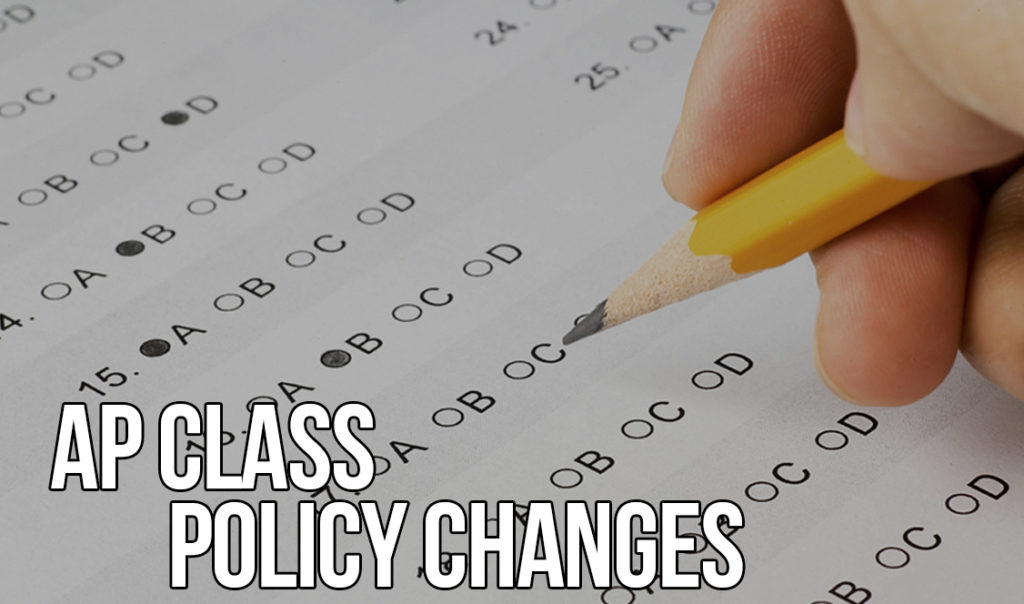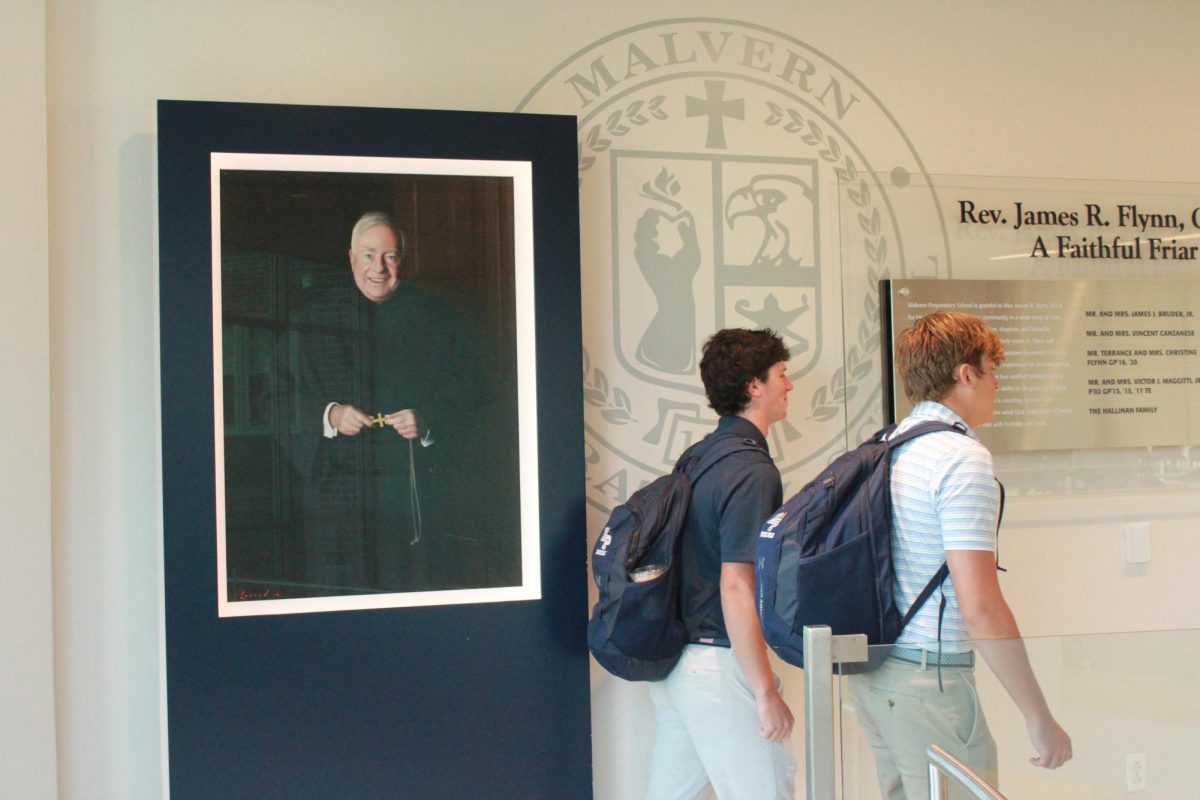After last year’s AP changes, the Administration has instituted two more addendums to the AP policy.
Coming into this year, several seniors in Mrs. Harriet Lappas’ AP Government class were excited to hear that they no longer had to take their AP tests. These exuberant smiles were soon replaced by looks of dismay when she further revealed that all APs would take final exams.
According to Assistant Head of School for Academics Mr. Patrick Sillup, all AP classes have been asked to take some form of summative assessment.
“We asked other classes to take a 20 percent final. Some teachers choose to break it as 10 percent and 10 percent, midterm [and] final… Your grade should reflect a summative experience,” Sillup said.
The reasoning behind this decisions makes a lot of sense according to Lappas.
“You can’t expect to take the highest level course a school [offers],” Lappas said. “The rigorous work needs [to continue] from September until graduation, not from September to January. The truth is we are doing you a disservice and are not preparing you for college if we let you slack off like that,” she said.
Lappas wants her students to be prepared for college, and she thinks that this exam will help keep students on track and away from senior slide.
“If you slide from January to June of your senior year, you’re not going to be ready for college next semester,” she said. “If we are going to hoodwink or fool the system, then everyone loses.”
Behavior like students sleeping during their exams doesn’t send a good message to teachers, according to Lappas.
“We have kids with pillows sleeping in the exams. Clearly, what does that say for what I’ve done all year? I sit at my kitchen table every weekend for hours preparing what we are going to do… it’s a terrible feeling,” she said.
Sillup thinks the decision to institute finals sends a message to colleges.
“I think attaching a final to it because we already do that in other academic settings sends [the] signal that we take it very seriously,” he said.
The second change to the AP policy allows students to freely choose if they would like to take their AP exams. The final exams are required, but not their AP counterparts. According to Sillup, this change came directly from student feedback.
“Many students said make them optional, ‘let me choose if I want to go for that external credential.’… I believe it should be a student’s decision and we need to support and create conditions for that,” he said.
Other than these two adjustments to Malvern’s AP policy, Sillup has been thinking of other possible future addendums that could help Malvern students best use AP classes. He has talked with several faculty members including Lappas about possibly removing a student’s AP credit depending on the circumstances.
“My wonder has been what would it look like, not this year, I’m not even saying that this will happen next year, but what would it look like to say yes you’ve earned the right to put [AP credits] on [your transcript], and that’s fantastic, but you have to finish strong,” he said.
In Sillup’s example, there would be negative consequences for students who don’t finish strong.
“We would have to call the institution and tell them in this example, that unfortunately the initial transcript you received is no longer accurate,” Sillup said.
Several students like Junior Tommy Bevevino stand in opposition towards the addition of AP final exams and the extra work that entails.
“I just don’t think it makes any sense. It is an AP class, so you’re supposed to be following the AP curriculum in order to be able to take that test, and that has always served in place of a final,” Bevevino said.
Bevevino also thinks that the studying that comes with these extra finals will be too much.
“We are already going to be studying enough for our other finals and AP tests. These are also not staggered like the AP test themselves, so this will cause more time to be spent on studying,” he said.
[perfectpullquote align=”right” bordertop=”false” cite=”” link=”” color=”” class=”” size=””]“We have kids with pillows sleeping in the exams. Clearly, what does that say for what I’ve done all year? I sit at my kitchen table every weekend for hours preparing what we are going to do… it’s a terrible feeling.”
-Mrs. Harriet Lappas
[/perfectpullquote]
Bevevino feels that students and parents will be unnecessarily burdened by these new final exams which he feels will do little to incentive students to learn.
“I think a final isn’t going to change the fact that kids care so little about education that they are sleeping through the AP test,” he said.
According to Bevevino, he, as well as his classmates, feel that they are being disincentivized to take these higher level classes. Other students like senior Ashton Canavan have a different perspective on the policy.
“I think it makes a little bit of sense because the school was forcing kids to take APs even though they couldn’t get credit for those APs [at] the schools they were going to, so for the seniors I think it makes a little bit of sense,” Canavan said.
Bevevino feels that this policy was poorly communicated.
“Yes it is the same material, but it is redundant to take that final when the real final is supposed to be the AP test. No one offered any explanation. It was just brought up on the syllabus and not even the teachers really knew why,” he said.
On the contrary, students on the other side of the aisle like Canavan critique the system instead of berating it as a whole.
“I think there should be a test exemption for someone who say has an A average in the class. I think that will motivate kids to push through that senior spring slide,” he said.
As a senior, Canavan thinks this will impact his classmates that decide to embrace the senior slide.
“I think that it will be similar to [the] current senior slide during the spring. It is a thing kids don’t do as well in the spring semester of the senior year as they have in the past, but I don’t think it will be as significant as most people think,” he said.
While the AP policy may be controversial, it resembles a new style of academic policy being implemented on Malvern`s campus. Although the student body is divided, students may see more similar policies enacted in the coming years.








